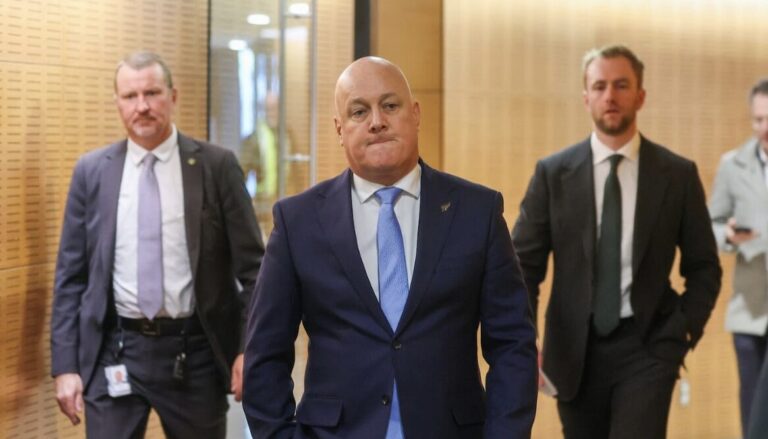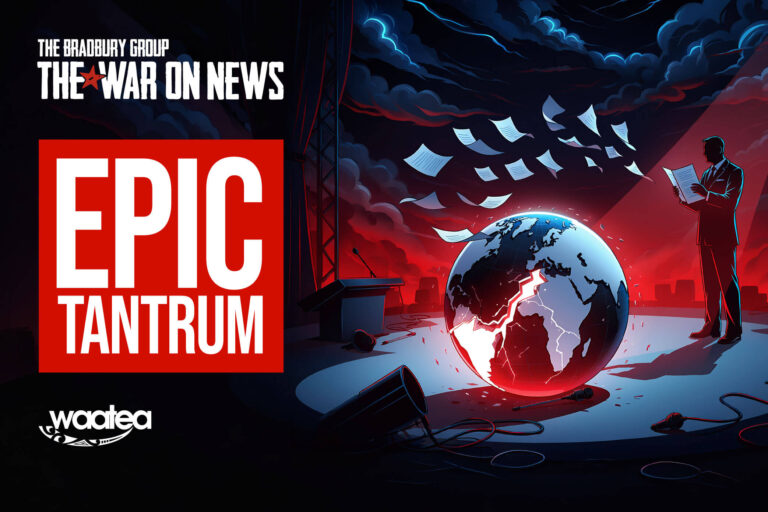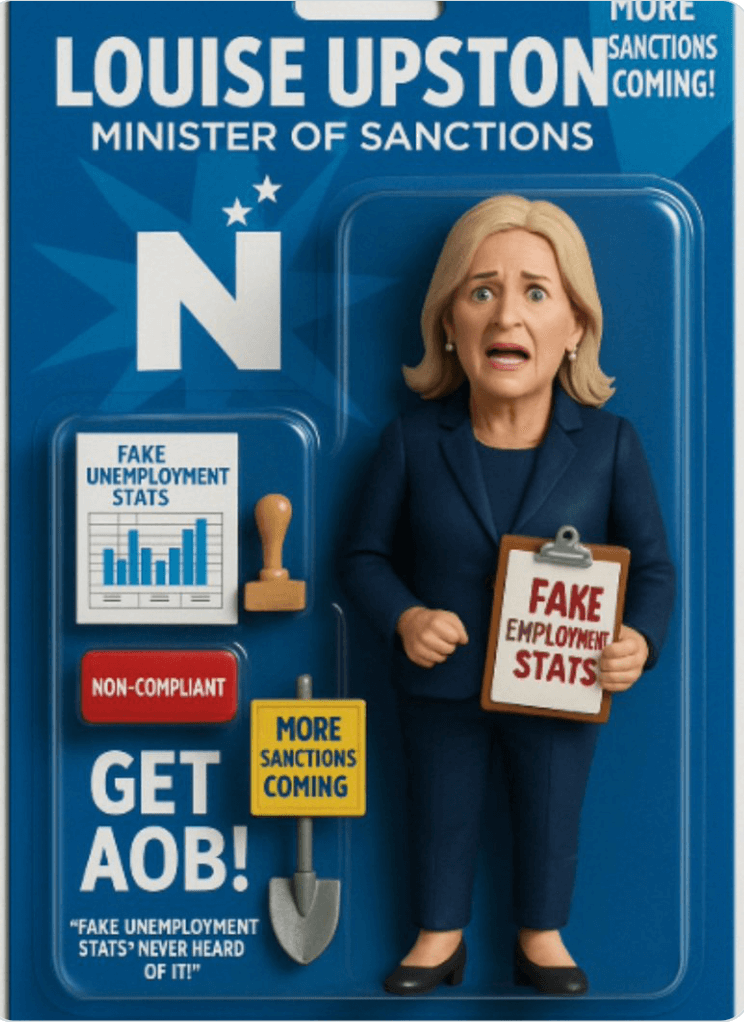“Yesterday’s Controversy” – Labour Better Hope So!
ANDREA VANCE’S CLAIM that: “Beyond 2022’s local government elections, Three Waters will be yesterday’s controversy”, is a bold one. Had the Delta Variant of Covid-19 not made it to New Zealand, and if Jacinda Ardern’s government was still basking in the warm glow of public adulation, then it is just possible that the Three Waters project would, indeed, have become “yesterday’s controversy” by 2023. But Delta did arrive, and the Prime Minister has become the lightning-rod for a noisy political movement dedicated to the utter destruction of both herself and her government. Labour’s Three Waters project can only assume an ever-increasing salience as that anti-government movement grows.
What Vance was careful to sidestep in her Polyanna-ish determination to focus our attention on the good intentions of Nanaia Mahuta and her colleagues, was the rock-solid promises of both the National and Act parties to dismantle the entire scheme the moment they reclaim the Treasury Benches. This is hardly surprising, because the Right’s pledge to repeal Three Waters makes a nonsense of the Government’s key explanation for the undemocratic construction of the four “entities” responsible for delivering the Three Water’s objectives.
We are told, by Vance herself, that the governance structure has been designed according to the specifications of the Standard and Poor’s credit- rating agency – now known as S&P Global Ratings. Without it, says S&P, the cheap money required to repair New Zealand’s drinking-, storm-, and waste-water infrastructure will not be forthcoming.
It is worth spending a few moments unpicking this extraordinary intervention from the enforcers of international finance. Essentially what the world’s money-lenders are saying is that, when it comes to financing large infrastructure projects, democratic accountability is a deal-breaker. The surprise here is not S&P’s demand, but this government’s uncritical acceptance of it. Rarely has the naked power-politics of the neoliberal world order been on such unabashed display. That the Labour Cabinet, Labour’s parliamentary caucus, and the Labour Party organisation, itself, have so meekly rolled-over on this issue is astonishing. That they have then concluded that slitting Democracy’s throat is their sad but necessary duty, is more than astonishing – it’s chilling.
Vance simply passes over this brutal abrogation of New Zealand’s sovereignty, and the political facilitation it has elicited, without comment, exposing with unusual clarity the ideological bankruptcy of “woke” journalism. Vance is eloquent in her description of the racism inherent in local government’s treatment of Māori, but she has nothing at all to say about the derangement of this country’s democratic institutions at the behest of neoliberalism’s international enforcers. The wonder of it all is that Vance and her journalistic colleagues still evince surprise and indignation when they find themselves bracketed with the Left’s politicians as “enemies of the people”.
Returning to S&P’s bottom line, the question arises: How will the world’s lenders react to the pledge of New Zealand’s right-wing parties to dismantle the Three Waters project? Asked to invest money in a venture so subject to the whims of the electorate, it beggars belief to suggest that any lender so disposed would not demand a premium rate of interest. Only a fool would throw cheap money into such a risky enterprise, and whatever else international financiers may be – they are not fools.
This creates an insurmountable problem for Mahuta and her colleagues. If the whole justification for the undemocratic structure of the Three Waters project is that nothing else can guarantee access to the cheap money needed to make it happen. And if it then turns out that the political risk involved with the Three Waters project is so great that the possibility of cheap money must be taken off the table. Well, then the justification the Three Waters project – as presently structured – must also be taken off the table.
That this would be the outcome must have been clear to Mahuta’s economic advisers. So, why is she still proceeding? Without the support of the right-wing parties, the Three Waters project simply cannot assume that the necessary cheap money will be forthcoming? Mahuta’s conduct only makes sense if the cheap money argument is nothing more than a smokescreen for another, much more important, if unstated, set of objectives.
Vance, herself, makes reference to this opaque communications environment:
“Where the Government has failed is in its communication of its intentions, and critics have exploited this weakness. Mahuta is not a natural communicator and has done a poor job of explaining how the asset ownership works, fudging direct questions about royalties.”
As well she might, if “royalties” were included among those important and unstated objectives.
Vance will not, however, entertain for one moment the idea that there may be more to Three waters that cheap money. With unseemly relish she reaches for that trusty journalistic stand-by: the accusation of conspiracy theorising. So handy whenever the paths of inquiry lead into territory neither editors nor publishers are keen to have their journalists traverse:
“Some critics have drawn a very long bow with a conspiracy theory which links the Three Waters proposals to the question of allocation of water rights.”
A long bow? Really? When the Waitangi Tribunal and a growing number of iwi have made it clear that the question of “Who owns the water?” must be answered soon – and that the correct answer is neither “The Crown”, nor “Nobody/Everybody”. A long bow? When the He Puapua Report, commissioned by Mahuta, makes it clear that by 2040 the restoration of Māori water rights should be an acknowledged and accomplished fact.
Mahuta’s strategic reticence on discussing Three Waters freely and fulsomely, along with Vance’s airy dismissal of any significant reasons for her doing so, are all of a piece. At their heart lies a deep (and not unjustified) fear that the truth will outrage sufficient New Zealanders to kill the project stone dead. This government, and its journalistic bodyguard, no longer trust the democratic system to deliver the “right” answers. Their response: to propose, and defend, a massive centralisation of power in bodies sealed-off from democratic accountability.
This would have been a bad idea in the very best of circumstances. Pursued with the sort of ruthlessness we have witnessed in the case of Nanaia Mahuta’s Three Waters, it has turned out to be much more than a bad idea. In the minds of a growing number of frightened and angry New Zealanders Mahuta’s project is further evidence of a political project of unprecedented scale and ambition. Justified, or unjustified, in the fraught conditions imposed upon New Zealand society by the Delta incursion, the belief is growing that Labour is making plans for New Zealand. Plans that its citizens will have no opportunity to either endorse or reject.
Andrea Vance rejects these people’s fears as conspiracy theories. She remains confident that Three Waters and its political siblings will be “yesterday’s controversies” by the time the next General Election rolls around in 2023. If she’s right, then all will be well for the Labour Government and its media apologists.
But, if she’s wrong …..







This piece has attracted far fewer comments than seems to be normal at this stage. That’s interesting.
Why? It has got to be to do with ambivalence around 50/50 co-governance and royalties. I wonder if Mr Moore would care to be more specific on this point?
If the ambivalence is a real thing, never would truer words have been spoken than these of Chris’s:
“At their heart lies a deep (and not unjustified) fear that the truth will outrage sufficient New Zealanders to kill the project stone dead. This government, and its journalistic bodyguard, no longer trust the democratic system to deliver the “right” answers. Their response: to propose, and defend, a massive centralisation of power in bodies sealed-off from democratic accountability.”
I think it would be good for Mahuta just to be honest on these issues. Then truly racist folks would show themselves to be that, idiots likewise, and the spectrum of positions would come into focus for all to see. We would have the chance to talk about something like (or maybe quite unlike) a SeaLords deal for water.
New Zealand really needs a wider political settlement on water for a host of reasons, not least reasons linked to agricultural, industrial and urban pollution of it. Parker knows that. But the settlement does need to be a genuine settlement – something agreed. Steamrolling here will be a disaster.
Insightful. It is chilling and so disappointing that Labour has done this.
This is an excellent summary of where things are at with the government 3 Water proposals.
Local government does not dispute that we all need to have clean, safe water in this country. It also does not dispute the role of Mana whenua. It does, however, dispute having its assets, paid for by generations of ratepayers, stolen from them and handed to an undemocratic arms’ length “board” acceptable to international money lenders.
The government’s 3 Waters proposals are based on an orchestrated litany of lies. Central government have generalised at how bad things are. The media have happily written that up as gospel. The number of people poisoned each year through water is exaggerated beyond belief. The new water standards have not been set yet but the government is trumpeting that it will cost between $120b and $185b to rectify the current structures. How can we treat figures which have a 50% variation seriously? The projected “savings” by the new structures are also a myth. This system is modelled on Scottish Water which has managed 25% savings over the years. The NZ proposed structure is budgetted to save 50%. The structure of the companies is undemocratic, and unnecessarily complicated.
Basically central government has no intention of investing in the 3 Waters infrastructure in this country. This is stated in their documents. This whole exercise is an abbrogation of responsibility of central government.
It would be possible to create regional structures, which would be a partnership between local and central government and iwi, which will reduce duplication and promote collaboration, something foreign to this government.
I was a Labour Mayor for 9 years. I have never seen more poorly thought through public policy in my life. It’s time for the Labour Party to stop treating local government as an illegitimate cousin at the family banquet.
My thanks for those comments, Gary. It is immensely helpful to have confirmation from someone of your experience.
To discover that the central government is forcing local authorities to fund their infrastructure upgrades almost entirely from offshore borrowing is deeply concerning.
Yeah but we don’t have tarrifs and no one owns the water. Unless we want to ban was we exports, some how we are going to have to take a bit of that water export revenue and pile it back into water infrastructure in the form of cheap loans (China loans).
Brilliant column, thanks Chris. As the government’s “bodyguards” over Three Waters, the MSM simply can’t understand the increasing hostility of the public towards them.
As you say: “The wonder of it all is that Vance and her journalistic colleagues still evince surprise and indignation when they find themselves bracketed with the Left’s politicians as ‘enemies of the people’.”
With Mahuta away for three critical weeks in the run-up to the introduction of Three Waters legislation in early December, it falls to Ardern to answer criticism and explain what Mahuta won’t. My bet is that she will duck the mayors’ call for a meeting.
https://democracyproject.nz/2021/11/15/graham-adams-ardern-on-the-hook-over-three-waters/
I think we take for granted that we’ve lived in the most stable period of time in all of history for the last 40 years. If we compare the treatment of Maori under Muldoon to now, we’ve made many remarkable achievements to make peace with Maori. And if we compare police commissioner Howard Broad to Andrew Coster, Maori are getting along with everyone remarkable well.
My basic premise is that if we can not maintain that basic order and stability then economic growth and social cohesion will be difficult to maintain.
That little cascade that I described basically means that when wealth shifts, power shifts and changes the relationship, and when relationships change, the underlying order has to change.
Let me say it another way I’m very proud of the treaty settlement process for one reason, that reason is that over time Maori will become wealthy. But instead of but instead of saying we welcome your wealth and experience, Maori are told nope, leadership and governance isn’t good enough for you so stay in the dirt. That will be even more risky for all of us.
A second thing to consider is that China has completed by the largest shift in wealth and power in all of human history meaning meaning that guy running global finance or what ever does not speak for China.
It’s very difficult to keep perspective when relative wealth and power shifts and managing those shifts in wealth and power and there fore relationships and the shifts in the underlying order and the tensions that flow from those shifts in the foundations of New Zealand’s democracy.